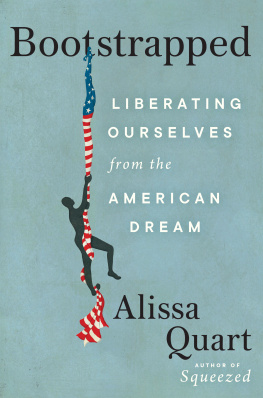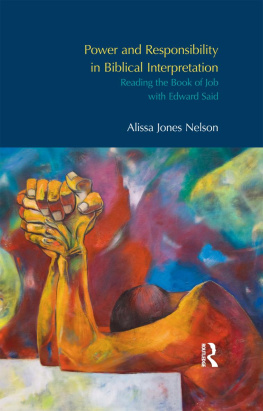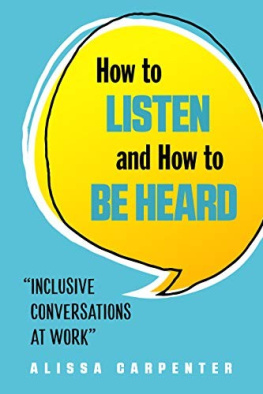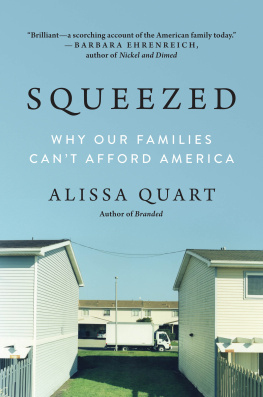Obsessed, bewildered/By the shipwreck/Of the singular/We have chosen the meaning/Of being numerous.
GEORGE OPPEN
I RECEIVE MESSAGES on a routine basis from strangers about how the poor are responsible for their own poverty. Those who are economically on the edge, they write, just need to pull themselves up by their bootstraps.
The complaints come in the form of emails and comments regarding the supposed bad choices of the financially unstable. These emailers find fault with the underresourced for ostensibly choosing to be single mothers or not saving themselves for marriages to good providers or for being evicted for being illegal immigrants or even for trying to continue to work as journalists. They wag their fingers at the indigent for having college or graduate school debt and for not getting adequate job retraining, not seeing this as a paradox. Others lecture the economically unstable for putatively wallowing in their condition.
It was not happenstance that I was the recipient: I was getting this stream of invective from news consumers because I run a journalism nonprofit called the Economic Hardship Reporting Project, which is devoted to covering income inequality and poverty, and I have also spent much of the last eight years reporting on these matters. Some of my organizations writers have experienced homelessness or eviction or they have had to watch family pets die because they couldnt afford vet bills; some of my sources have experienced similar setbacks.
And as a result of editing, writing, and publishing these stories, I have learned more about this toxic ideology. Its classist, sure, but its also a prime example of how our countrys most unprotected, its poorest citizens, are routinely and publicly shamed, a kind of nationwide bullying.
The letter writers and commenters were not just apt to critique others for a presumed shortage of self-discipline. These armchair critics also did the inverse, glorifying their own supposedly independent lives in notes and posts and on call-in radio shows. One informed me that he had thrived even though his own parents had only GEDs. Anothers mom was only a teenager when they were born, but they now earned six figures. The letters and comments often concluded with a celebration of how my correspondent had lived without government or other assistance or supported a child or children through their household earnings alone, including the incomes of their (very heterosexual) husbands, if they were women. They also loved to note that they themselves had managed to save some money, had a car, a TV, and food. As one writes to me, I wish younger people would stop trying to blame others for their problems and look within. We are all products of our choices, and unfortunately, sometimes we just have to live with the consequences! Another remarks, You are responsible for everything you do in life... you are talking about giving people an income, talking about free health care. Your health is your responsibility... I drive a 2011 pickup truck because I do not need to buy a new one. Or: In your view, it seems to be OK to live beyond ones means without regard to the financial consequences, because the government (or someone) should pick up the slack.
In my childhood, we called these sorts of sneering voices the peanut galleryback then, I thought that meant you literally threw empty shells at people onstage, from a distance. And it still seems appropriate, because they are the crowds who refuse to take others expression of their economic straits seriously and throw detritus at anyone who dares to be open about their financial realities. The gallery likes to minimize the level of the other persons suffering or the effort they put in. And they enjoy the supposed moral fragilities of those who are economically vulnerable. They sneer: Didnt they choose to send their children to college, perhaps taking on educational debt? And why had they chosen to have children in the first place? And how dare they own a modular couch or a flat-screen television? The peanut gallery might ask these questions of others, as if by ostensibly having made better choices for themselves they would feel protected from future fragility or illness or other human losses. I have come to realize that these sentiments dont run contrary to the American Dream. Instead, they express the dream at its worst.
I call the way these folks chase this stereotyped version of success bootstrapping. Its a shorthand term I am using to describe this every-man-for-themselves individualism. It also defines how this mentality affects those who cant make it, in the conventional sense, and have internalized the bias against them.
Bootstrapping, that is pulling ourselves up by our bootstraps, also contains many of the contemporary tropes and archetypes, like girlbosses, the updated millennial version of the self-made corporate woman, and side hustling. And as you will see in this book, its no accident that many of the trendy idioms describing our economic state may sound appealing and cool, but they most often simply describe the anxious experience of being financially on ones own. These phrases are part of what it means to dwell in a bootstraps society. In addition, there are phenomena that are unidentified yet ubiquitous. I have named as many as I could in this book, among them the dystopian social safety net, a term to describe social programs or crowdfunding arrangements that should not have to exist yet we rely on heavily. That the dystopian social safety net is there at all is due to the fact that we live in a nation that demands we be impossibly self-reliant. Much of this book is devoted to better understanding these social constructs, conceptions that serve to cover up how little societal care we receive.
Those who subscribe to the fantasy of self-sufficiency believe that people can and must make it on their ownand studies like a recent one by the nonprofit organization the Moving Up Media Lab have found that indeed most Americans think success is something one achieves alone. And people who believe this are also more likely to judge others who are in precarious financial situations and are more inclined to deny the role of inborn advantages or any outside help they received. Some examples of this blame-iness include a 2020 Pew study that revealed that 42 percent of Republicans say those who are poor are indigent because they have not worked as hard as most others. In addition, 60 percent of Republicans agreed with the statement People get stuck in poverty primarily because they make bad decisions or lack the ambition to do better in life, according to a 2019 Center for American Progress survey. (Others supported statements like If everyone tries hard, everyone can get rich.)
This mindset is so pervasive that it leads to self-blame, with people wondering what they may have done wrong to wind up in their circumstances; often the reason was being born to a family without adequate savings or having accrued educational debt due to the higher learning they were told by their teachers and political leaders to acquire. Those left out of the feeding frenzy of self-betterment fault themselves. According to a 2015 Oxford University and Joseph Rowntree Foundation study, poorer people tend to experience a negative self-stereotyping effect, absorbing the media clichs and considering themselves low in competence, and even flawed at the root.
Over the last eight years I have seen how the stark economic gradient and the faith in a certain version of the American Dream fed on each other in strange and dark ways. It can be a form of what Lauren Berlant, a University of Chicago cultural theorist, calls cruel optimism, where your own desire prevents you from thriving. In other words, our countrys ideal of happiness is a fantastic and impossible pursuit, and one full of stress. It is bad for us, a veritable deadly nightshade.







